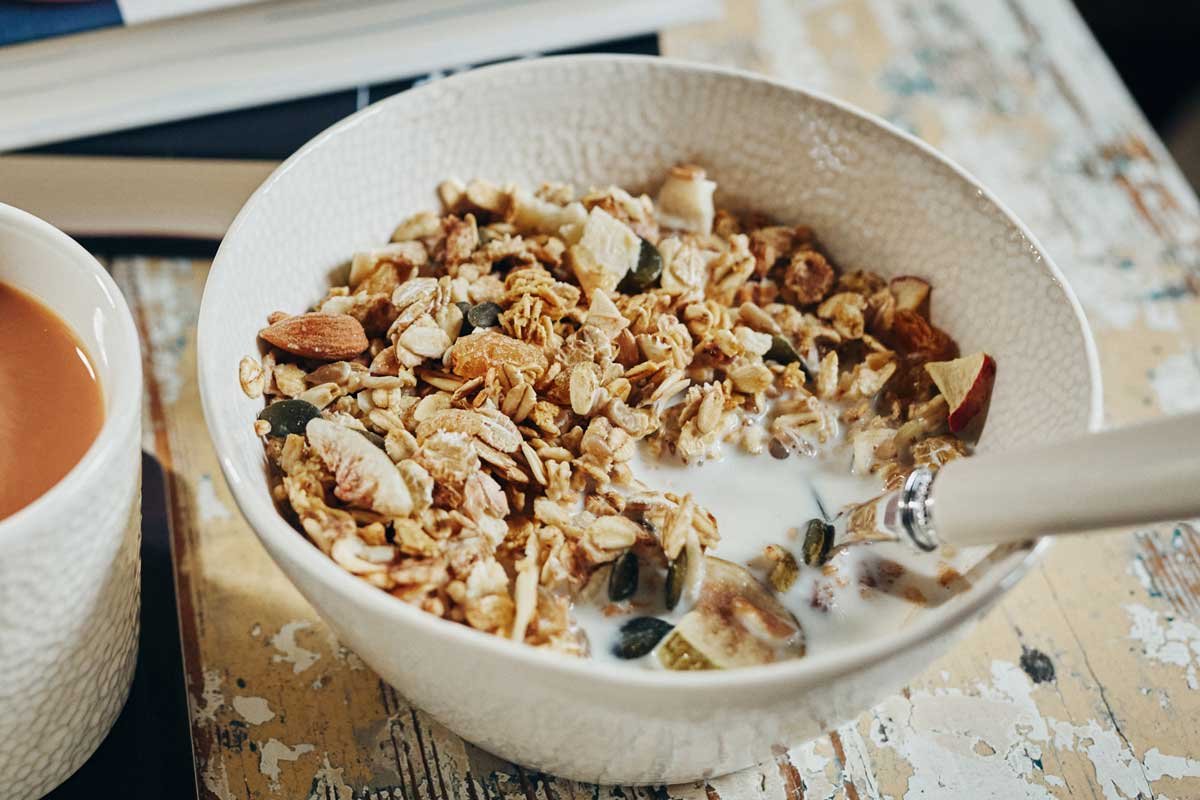Digestive Health
You may have often heard dieticians, nutritionists and even celebrities talking about the importance of their digestive system and gut health. But do you know what this consists of? Need guidance on how to keep yours in tip-top shape? You’ve come to the right place. We’ve put the following frequently asked questions together to provide the answers you need to start giving your gut the love it deserves and start to feel #AWholeLotBetter
What is the Digestive System?
Simply put, the digestive system is the group of organs that work together to break down food so the body can absorb its nutrients. These nutrients are important to the body; they provide it with the energy, minerals and vitamins it needs to operate at its very best and keep it healthy. It consists of ten important organs and keeping each one happy and healthy is vital to good digestive health.
It’s important to keep our gut healthy
Did you know, there are an estimated one hundred trillion good and bad bacteria working hard to maintain your gut health? So, it seems sensible to look after them, and keep them working as efficiently as possible!
What’s more, 90% of your body’s serotonin is produced in the gut – which is key for managing sleep, mood, anxiety and general sense of wellbeing – so there is plenty of evidence to suggest that a healthy gut equals a healthy mind.
So, what foods should you choose?
Firstly, fibre is a key component to a healthy gut. The NHS suggests we should be eating 30g of fibre a day in order to aid our digestion and keep our guts healthy. Nuts, fruits, oats and seeds are all super sources of fibre.
Omega-3 is also a key component of a healthy digestive system. Responsible for reducing inflammation, which can help an uncomfortable tummy. Get your fill from salmon, mackerel or cod liver oil. If you’re looking for plant-based options, reach for chia seeds, walnuts and soya beans.
Probiotics are the digestive system’s friendly bacteria and help keep the gut in top shape. These can also be found in some yogurts and Digestive Health granola, so making these foods a regular part of your diet gives your gut the support it needs to stay healthy.
What does high fibre mean? Why is it important?
The term ‘high fibre’ means that a food is full of complex carbohydrates found in the cell walls of plant-based, or ‘whole’ foods. Fibre can be found in soluble, insoluble and prebiotic forms. While other carbohydrates are broken down into simple sugars, fibre remains undigested, until it reaches the large intestine – or not at all.
High-fibre foods play an important role in our overall health. They promote good gut health, keeping the digestive tract moving as it should and preventing waste products from staying in the body too long, which can cause harmful toxins to enter the blood stream through the intestinal wall. Fibre also helps to regulate cholesterol and blood glucose levels and can support our feelings of satiety when eating to help us know when we’re full!
What are the tell-tale signs of an unhealthy gut?
There are a few different ways an unhealthy digestive system or an unloved gut can affect your health. Being in-tune with your body, and understanding when it needs a little TLC, can help you make good choices, and feel better every day.
What are the tell-tale signs of poor gut health?
- Bloating, bad tummy aches or irregular toilet visits!
- Unpleasant breath
- Food allergies or sensitivities
- Mood swings or feeling anxious
- Poor memory
- Restless or interrupted sleep
Obviously, this list is not exhaustive, and different people will react in different ways when their digestive system needs a little love. Likewise, these symptoms are not necessarily reflections of poor gut health, but it’s a sensible place to start.


